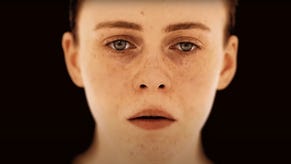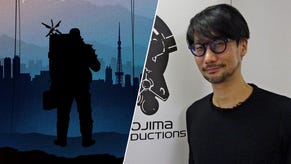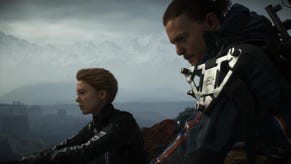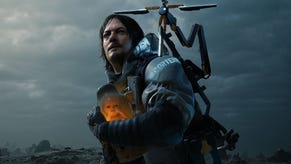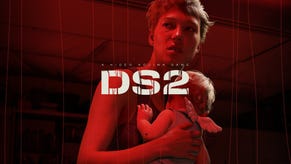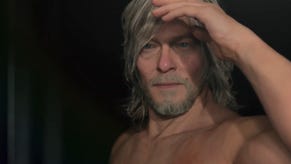How Sony and Kojima Productions Played Telephone Across the Globe to Create Death Stranding's Soundscape
Backstage at DICE 2020, the audio team at Sony tell us about working across time zones with Kojima Productions.
This article first appeared on USgamer, a partner publication of VG247. Some content, such as this article, has been migrated to VG247 for posterity after USgamer's closure - but it has not been edited or further vetted by the VG247 team.
Backstage at the 23rd annual DICE Awards, the energy is electric. It's the tail end of a long week of networking, roundtables, and talks at DICE Summit 2020, and now everyone can finally let loose-even with reporters huddling in corners with microphones and video cameras, asking the same old question ad nauseam: "How does it feel to win?" The team at Sony Interactive Entertainment, who helped develop the audio for Death Stranding, are particularly vibing.
I'm joined backstage in a huddle by members of the audio team at Sony, who collaborated with Kojima Productions on Death Stranding. They feel like a large group, but it's actually representative of a surprisingly small team for a triple-A project featuring A-list actors. In an interview with GameSpot, director and studio head Hideo Kojima once said that Kojima Productions is only about 80 people, a low number compared to the hundreds or even thousands of people that power other triple-A studios.
The smaller team didn't necessarily mean a smaller scope though. Death Stranding is an expansive open-world journey across a desolate America ridden with rabid former pseudo-Amazon delivery workers and speckly ghosts. It houses what's maybe the most compelling online infrastructure seen in years. And it had help from Sony Interactive Entertainment, and not just in publishing.
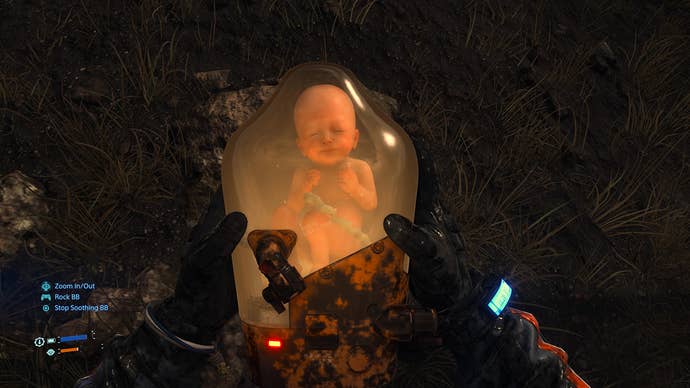
At the 2020 DICE Awards, members of Sony's audio team accepted the award for Outstanding Achievement in Audio Design. The cross-development team worked together swimmingly, they tell USgamer backstage at the awards. "[T]o be honest with you, a lot of it, in fact almost all of it, was driven by Mr. Kojima," says Chuck Doud, head of the music team at Sony. "He definitely had a clear vision of what he wanted, and in order to realize that vision, we knew we needed a combination of original score and licensed music. So if you listen to the game, listen to the sound design and music in the game, it's a combination of all of that."
Death Stranding's soundtrack includes licensed songs from bands like Low Roar, and even an original track from Chvrches. The original score was composed by Ludvig Forssel, who also served as audio director on Death Stranding at Kojima Productions. After all, it's not just the music of Death Stranding that's memorable. From how it embraces the quiet of nature as protagonist Sam's heavy cargo makes subtle noises with even the slightest movement to the loud crying of BB if he trips and falls down a cliff (as this writer did often), the team behind Death Stranding forged an identity via pure sound, even when its team was spread out across the world.
In an interview with Eurogamer, Kojima talks about how he selects music for his games, "I try to be connected to the actors, film directors, authors, artists, and musicians I personally like. The way I select the music or artists is based on trust I establish with them."
The team at Sony, to that end, talk about their own close connection with the director, even with oceans and land masses dividing them.
"Mr. Kojima is really collaborative," says lead sound designer Mike Niederquell, who also worked on God of War and creating the guttural voice of the World Serpent. "So we'd be in a mixing session, mixing some of the cinematics, and I was able to throw stuff his way and he would throw stuff back. It was a very collaborative environment, but he also comes with a lot of ideas that you might not have. He has a big stake and his hands [are] in every single pie directing his thing. So when you hear about that, that's true."
The sound of Death Stranding, Niederquell says, is the way it is because of its leaders having "fresh" perspectives, from Forssel to Kojima. "There's a lot of mix choices that [Forssel] would make while we were mixing the cinematics that I wasn't thinking of," says Niederquell, "or pulling certain things all the way out and bringing certain things all the way in. And it was his fresh take on all that that really made the cinematics feel the way they do."
Phil Kovats, director of sound at Sony, credits Forssel for giving Sony's audio team a lot of freedom to experiment in its own sound design construction. "[A] lot of this goes to Ludvig the audio director as well, who literally gave us carte blanche to develop everything we could because he had spent a lot of time in music as a composer himself," says Kovats, who says that the constant back and forth nature of the teams worked in concert "instead of antagonistically against each other."
It all circles back to the household name of a director though: Kojima. According to Jeremie Voillot, the senior manager for the sound design team, the director has a good ear for audio design. "He'll tell us to push the volume to a peak where we're not comfortable with, but he's going for a very specific emotion or a very specific impact," adds Niederquell, "and oftentimes he's right. He has a very good ear, like Jeremie said."
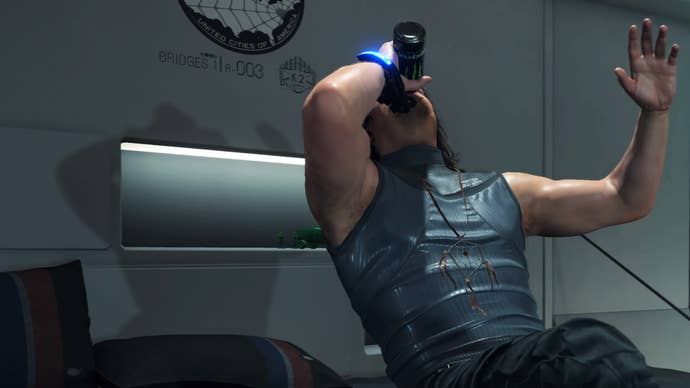
While working across continents sounds logistically cumbersome, having hands-on directors like Forssel and Kojima helped keep Death Stranding on track. "It makes it a lot easier to collaborate when you have that clear vision and you have those key stakeholders," says Dialogue Supervisor Jodi Kupsco. Voillot adds that with their structure, Sony and Kojima Productions in tandem amounted to working 24 hours a day on the project. Kupsco is quick to jump in on that tidbit though: "It's not the same people! We got to sleep," she says with a laugh.
"Yeah, exactly," says Voillot. "But I think at the end of the project, it was definitely all hands on deck. We would shut down for the night, they'd just be waking up. We'd be giving them notes, they'd be giving us notes, and it was a huge, phenomenal effort."
Death Stranding also took home the DICE Award for Outstanding Technical Achievement. Out now on PlayStation 4, the latest Kojima-directed game is headed to PC later this year.
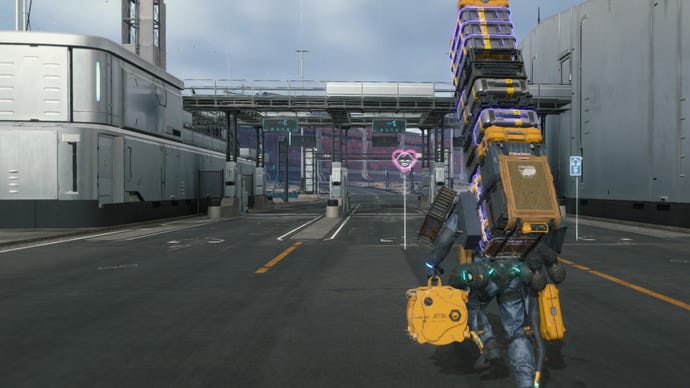


.jpg?width=291&height=164&fit=crop&quality=80&format=jpg&auto=webp)
